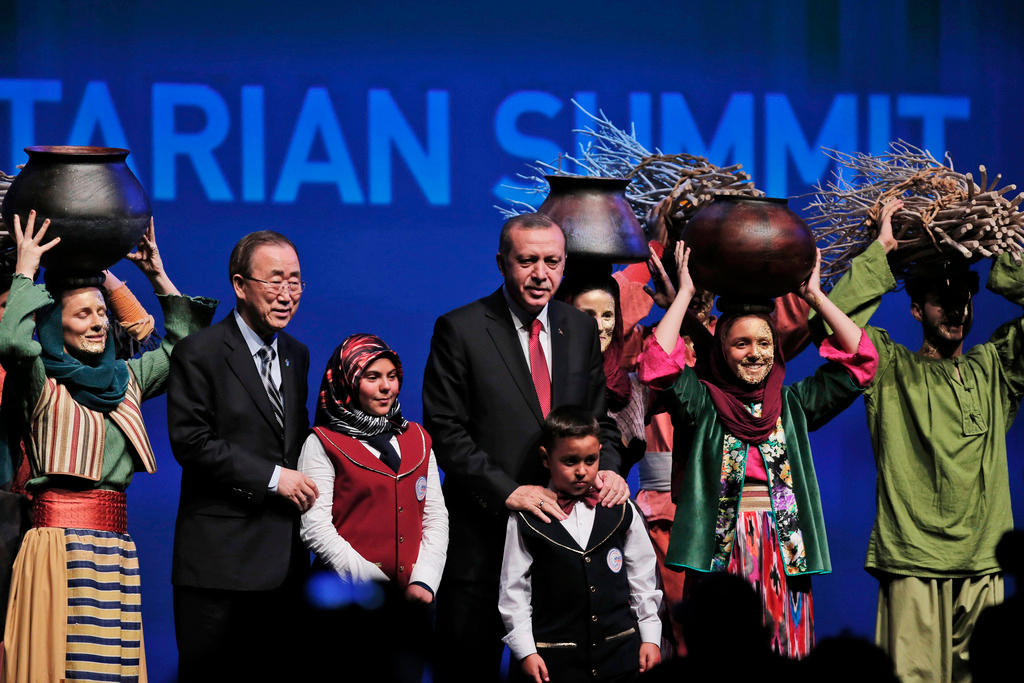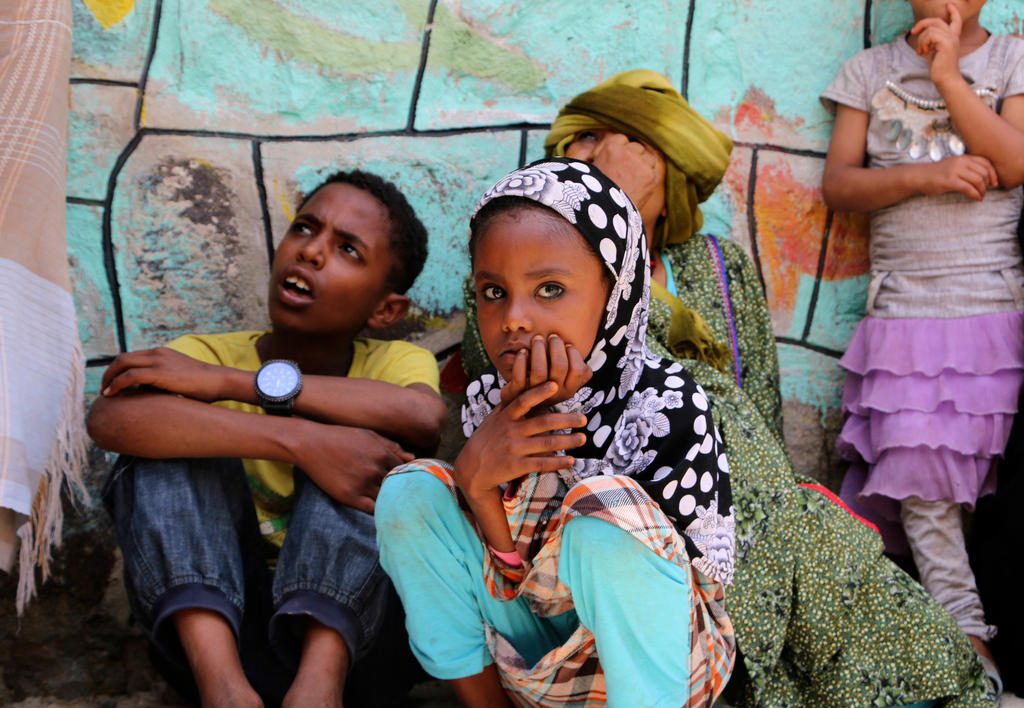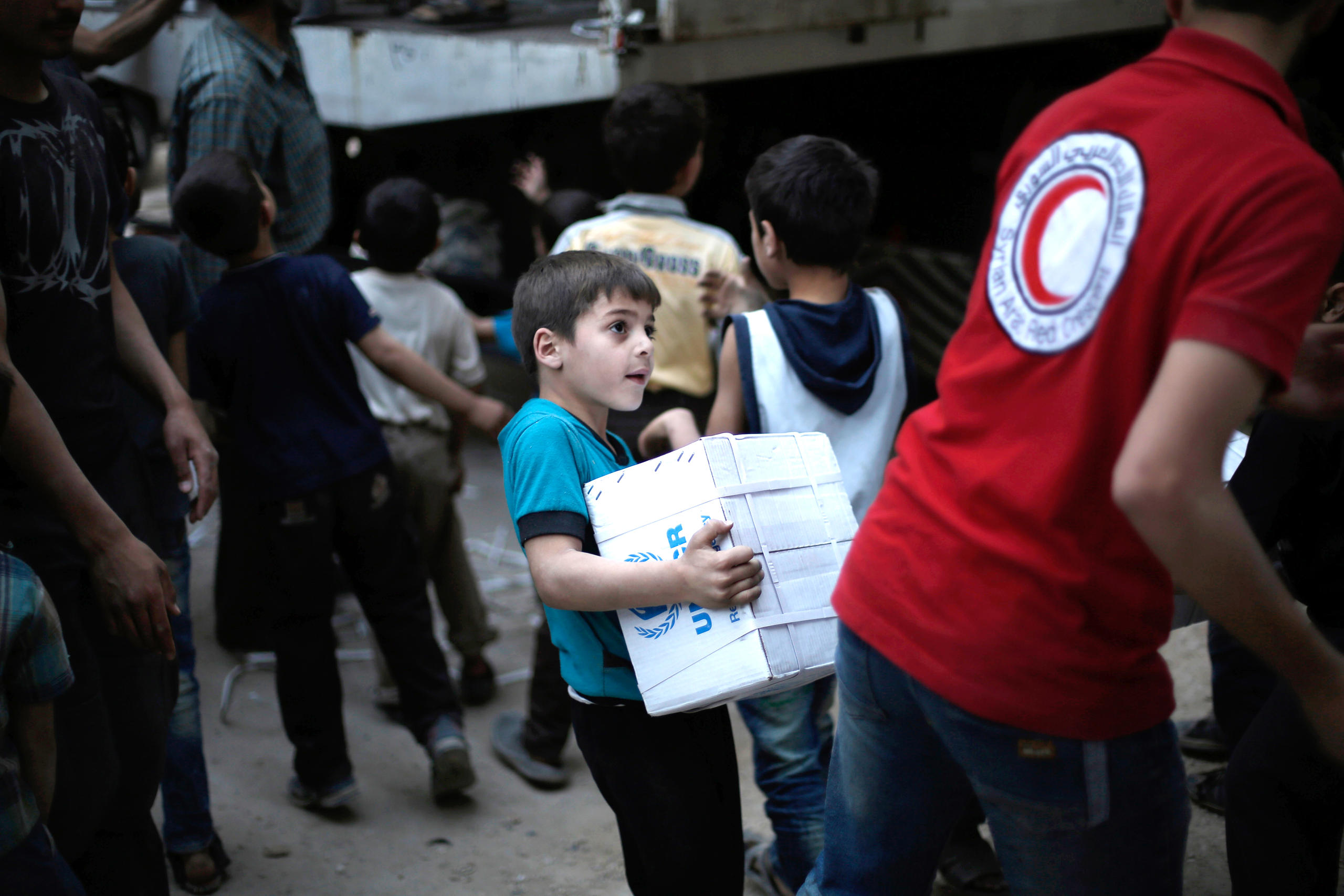Swiss aid official upbeat after humanitarian summit

While there was disappointment that leaders of the world’s wealthiest nations failed to attend a key humanitarian summit in Turkey, top Swiss official Manuel Bessler said there was still much to be positive about.
The two-day World Humanitarian Summit in Istanbul, which ended on Tuesday, drew the participation of 65 heads of state. However, several participants were disappointed with the attendance. Only German Chancellor Angela Merkel from the G7 group of wealthy nations attended the summit.
“The absence of these [G7] leaders from this meeting does not provide an excuse for inaction,” said UN Secretary General Ban Ki-moon. “They have a unique responsibility to pursue peace and stability.”
Manuel Bessler, Switzerland’s top humanitarian aid delegate, said many European and African countries had made the trip alongside those from the Pacific region.
“But there were few high-level representatives from South America or Asia. China sent only a technical delegation like India, and NGOs from developing nations were not very present,” he told swissinfo.ch.
But the head of the Swiss Humanitarian Aid Unit said time at the Istanbul meeting was well spent.
“This summit was not just an intergovernmental process. It included member states, humanitarian organisations, UN agencies and also NGOs and people affected from Syria, Afghanistan and Yemen,” he said.
“It was a chance for all actors present to meet, develop their network and share experiences. It was a huge opportunity for networking and sharing experiences. Of course you can wonder if it was worth holding a summit just for networking. But this conference is a beginning. And naturally we have to see what will be the follow-up to all the various commitments.”
Monitoring mechanism
Switzerland and the International Committee of the Red Cross (ICRC) have launched an initiative to create an independent mechanism to verify respect for and violations of international humanitarian law.
“Such a mechanism will contribute towards better protection of civilians in the event of war,” Bessler said. “This idea was already discussed during the last conference of the Red Cross and Red Crescent Movement in Geneva. It was quite tough, as certain states are not at ease with such an idea. But in Istanbul Swiss Foreign Minister Didier Burkhalter reiterated the commitment of Switzerland and of the ICRC to create such a mechanism.”
Another Swiss priority is to create stronger links and better collaboration between emergency humanitarian and development aid sectors, particularly for drawn-out crises like in Syria, Afghanistan and Somalia.
The summit had drawn criticism from the international medical aid agency Doctors Without Borders (MSF), which pulled out, saying the meeting would not address the growing needs caused by war and violence across the world because of its non-binding nature.
In a statement it said it did not have “any hope that the [summit] will address the weaknesses in humanitarian action and emergency response, particularly in conflict areas or epidemic situations”.
Bessler said getting development and emergency aid organisations to work together was easier said than done.
“Humanitarian actors work independently, with maximum impartiality. Development aid organisations must work alongside governments. This can be often difficult to work with a government: either it doesn’t exist or collaborating with it can be difficult as in the case of Syria,” he said.
According to the UN, disasters, both man-made and natural, mean 130 million people need humanitarian aid, costing an annual $240 billion (CHF238 billion), a 12-fold increase since 2000 but still just 1% of global military spending.

In compliance with the JTI standards
More: SWI swissinfo.ch certified by the Journalism Trust Initiative


You can find an overview of ongoing debates with our journalists here. Please join us!
If you want to start a conversation about a topic raised in this article or want to report factual errors, email us at english@swissinfo.ch.